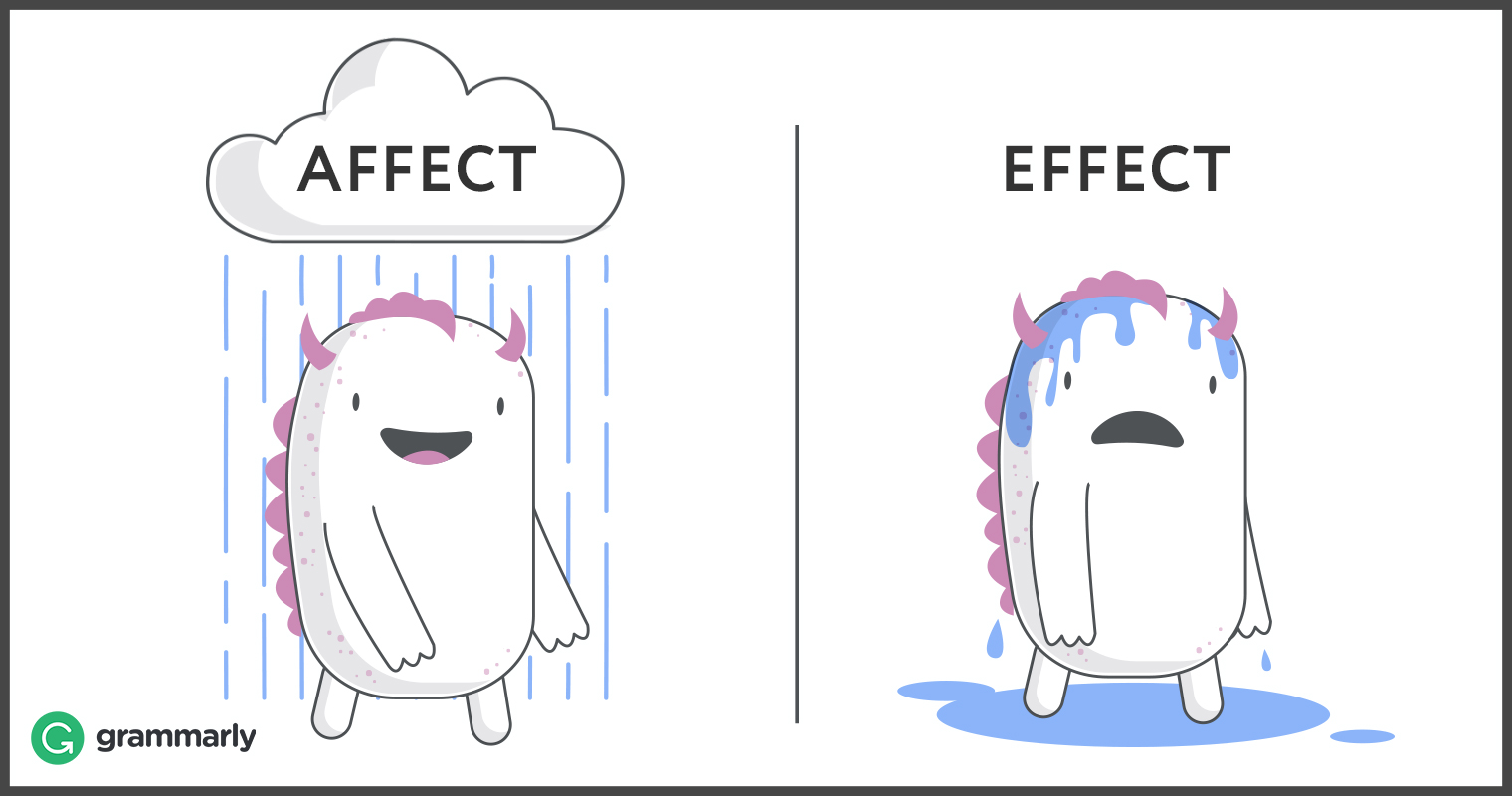1. ‘Affect’ vs ‘Effect’
Affect is a verb – “to affect” – meaning to influence or have an impact on something. Effect is the noun – “an effect (a positive or a negative effect) is the result of being affected by something

2.’Which’ vs ‘That’
Which is used when we want to give non-essential extra information( If we remove the extra information the sentence would still make sense. We don’t have to have it to understand the meaning )
That is used when we want to give an essential extra information
IMPORTANT– We do not use punctuation(comma) before that, but we do before and after when we use which.





To understand when to use that or which, it’s important to understand clauses. A defining clause (also called an essential clause or a restrictive clause) gives information essential to the meaning of the sentence. That is used in defining clauses. Here’s an example:
My bike that has a broken seat is in the garage.
In this sentence, you understand that the speaker has at least one other bike. Specifically, the bike he’s talking about is distinguished from his other bikes by its broken seat. If you removed the clause “that has a broken seat,” you would lose the implication that he owns more than one bicycle, and even if you somehow knew about the other bikes, you wouldn’t know which one was in the garage.
Which introduces non-defining clauses. Unlike defining clauses, non-defining clauses (also called nonessential or nonrestrictive clauses) don’t limit the meaning of the sentence. You might lose interesting details if you remove them, but the meaning of the sentence wouldn’t change. Sometimes, these phrases are set off by commas.My bike, which has a broken seat, is in the garage.
Here, the broken seat is simply a description of the bike in the garage. There’s no implication that the speaker owns more than one bike. Do you see the difference? Perhaps a little mnemonic device will help you to remember how to choose between that or which.
How to Remember the Difference Between That and Which
Because non-defining clauses add removable information, it’s easy to remember to use which if you think of a plastic sandwich bag. They are disposable, and so are clauses with which. Let’s look at some examples from real life.
Who vs Which
We use who for people.
We use which for things.
It’s vs Its
